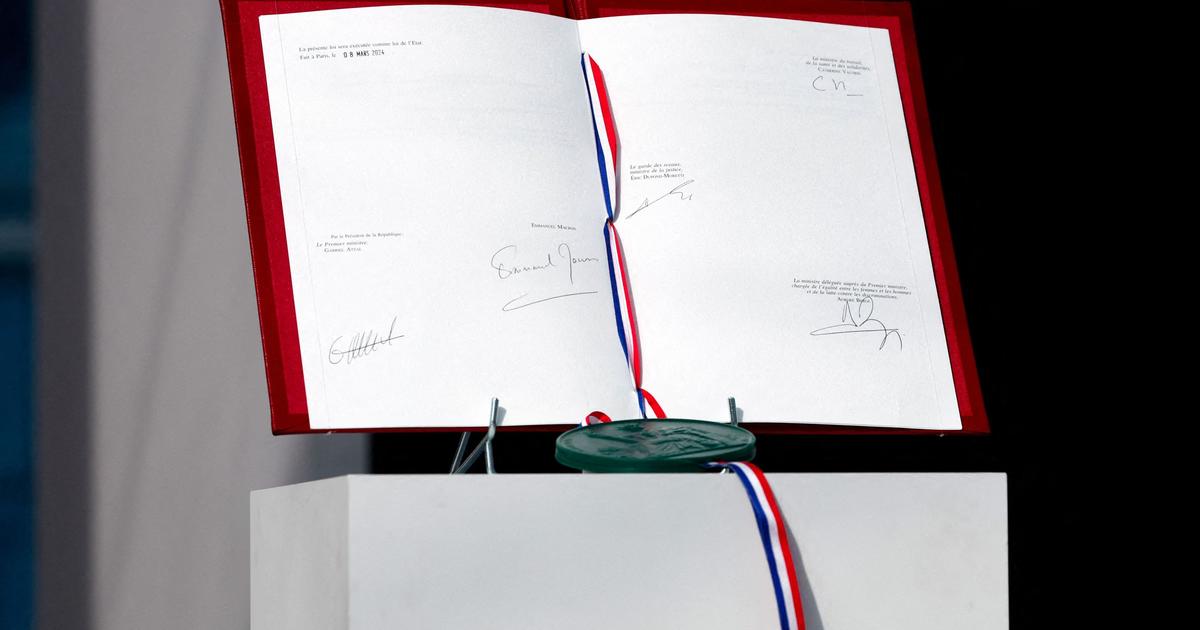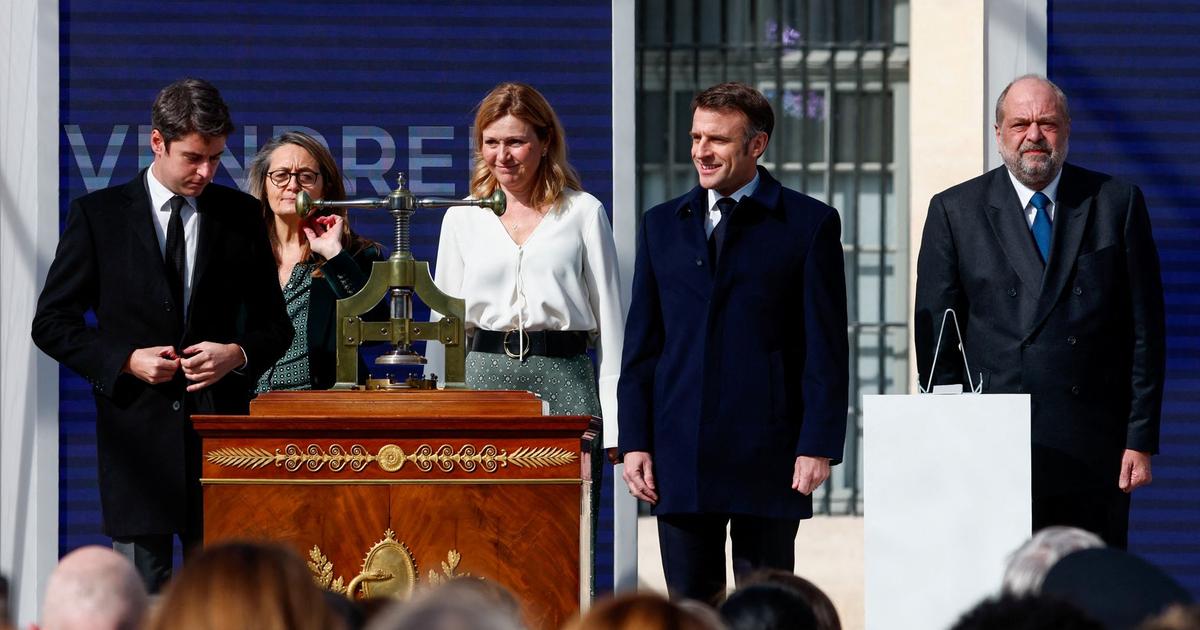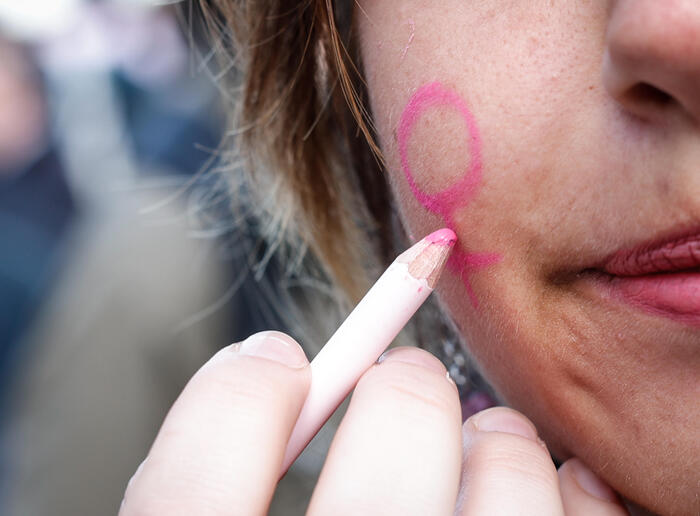Simone Veil (center) and Jacques Chirac, at the 1974 National Assembly debate on abortion.Gilbert UZAN / Gamma-Rapho via Getty Images
In the history of French feminism, and probably beyond its borders, there is a before and after April 5, 1971. On that day, the French magazine
Le Nouvel Observateur
it published, as it announced in large letters on a black background on its cover, the “list of 343 French women who have the courage to sign the manifesto 'I have aborted'”.
Among them, personalities such as Simone de Beauvoir, Marguerite Duras, Catherine Deneuve or Agnès Varda, but also anonymous women, some of whom would suffer legal or professional consequences for having stood up to denounce a reality, that of the thousands of women who died. every year for clandestinely aborting.
Behind the right to voluntarily terminate pregnancy, then and now, is the right to dispose of one's own body which today is still claimed, and often denied, in many countries, even in a Europe where governments like the Polish backtrack on the decriminalization of abortion.
Half a century after the manifesto of the “343
bitches
”, as the satirical magazine
Charlie Hebdo
baptized it
, feminists celebrate advances, and many, from that action that most consider inspiring and to which the
MeToo
movement is in a way heir
.
But they also warn that many fronts remain open.
“One million women abort each year in France.
They do it in dangerous conditions due to the secrecy to which they are condemned (…) I declare that I am one of them.
I declare that I have aborted.
Just as we demand free access to contraceptives, we demand free abortion ”.
Thus began the text edited by Simone de Beauvoir and agreed upon by a group of women, most of them from the Movement for the Liberation of Women (MLF), which had become known a year earlier by depositing the unknown soldier in the Arch at the grave. from the Triumph of Paris a flower crown "for the wife of the unknown soldier" with slogans such as "there is someone more unknown than the unknown soldier: his wife", or "one in every two men is a woman."
The idea for the manifesto came from
Le Nouvel Observateur
journalist
Nicole Muchnik after a talk with the magazine's chief of documentation, Jean Moreau.
“We talked about clandestine abortions, which was a scandal, they were done in absolutely inhumane conditions.
And I tell him: I have had an abortion and I would be willing to sign.
Women who aborted would have to say they have done so, ”says Muchnik by phone from Madrid, where she has lived for decades.
"That's where the idea came from, I don't know who said the word manifesto, maybe it was later Simone de Beauvoir, but with Moreau we said that we had to make women sign, famous if possible."
Muchnik contacted Anne Zelensky, one of the MLF's founders, who "was immediately enthusiastic" and in turn asked the author of
The Second Sex for help
.
Simone de Beauvoir, center, during protests against the abortion trial in Bobigny.artault erwan / Sygma via Getty Images
Lawyer Gisèle Halimi, icon of feminism in France, dies
In France, the contraceptive pill had been allowed since 1967, although only 6% of women took it due to the difficulty in obtaining it, since only from 1974 - a year before abortion was legalized - did it begin to be reimbursed by Social Security.
Some 5,000 women died each year from a clandestine abortion when the MLF feminists began to prepare in Beauvoir's house the "manifesto of 343 women", as it was called until
Charlie Hebdo
made a joke about the 343
salopes
, which has been translated to Castilian as bitch, slut or scoundrel.
Some of the signatories vindicate
salopes
, such as Muchnik - "
Charlie
did us an extraordinary favor, he was very popular," she says - although others reject it as "anti-feminist and patriarchal", such as the sociologist Christine Delphy, another of the signatories.
In any case, it was one more example of the impact of the manifesto.
“He made a great noise.
Never before has there been such a movement for freedom from abortion.
It is the manifesto of 343 women who write 'I have aborted', that is to say, they challenge the Government to blame them ”, explains Delphy, who founded the
Nouvelles Questions Féministes
magazine with Beauvoir
.
"It was a turning point," agrees the producer and activist Rokhaya Diallo, one of the most controversial voices in France today for his positions on racism or feminism.
"We are talking about women known, esteemed, who took a political position."
The furious reactions were immediate, recalls
L'Obs
in its latest issue, dedicated to the anniversary.
Despite everything, says Delphy, "there was no general revolt in the country."
After its publication, 55% of the French declared themselves in favor of the legalization of abortion.
Even so, it took four more years of actions, protests and trials until the president, Valéry Giscard d'Estaing, commissioned his Minister of Health, Simone Veil, a bill to legalize abortion, which has since been known as the Veil Law.
Half a century later, "the struggle is not over," says Fabienne El Khouri, from the Osez le féminisme collective.
“We still have many pending battles, from the wage gap to the judicial one, with impunity for aggressors, rapists and pedophiles.
Most of the women have suffered some type of harassment at least once in their life ”, lists El Khouri who, like the majority of French feminists, considers the Spanish law against gender violence of 2004 a benchmark.
And the issue of abortion, which in France is only allowed up to 12 weeks, is also still pending, he stresses.
Every year, between 3,000 and 5,000 French women travel abroad, among others to Spain, to have an abortion outside that period.
A legislative attempt to extend it to 14 weeks recently failed.
This Sunday, another 343 French personalities and activists, such as the singer and actress Vanessa Paradis or the former socialist ministers Najat Vallaud-Belkacem and Laurence Rossignol, signed a new manifesto demanding to extend the deadlines.
“I declare to have aborted.
In France.
Abroad.
Beyond the French legal term (…) from 1971 to 2021, from one manifesto to another, the right to abortion is a right yet to be conquered, ”write the signatories, including Delphy and Diallo.
In 2011, to commemorate the 40th anniversary of the “343
foxes
”
manifesto
, another 343 women —artists, writers or activists, including Diallo— signed
a new manifesto
in
Libération
demanding “the equality of women and men, both in the minds as in deeds ”.
In 2021, reflects Diallo, "we continue in the same combat (for 50 years), that women have freedom with their body, that they can dispose of it without anyone giving their opinion or judging them."
But something has changed, he points out: “It is true that there are many issues that were fought against in the 70s, which we talked about in the manifesto of ten years ago and which are still current, but at the same time, I feel that never before we had talked so much about women's rights ”.

/cloudfront-eu-central-1.images.arcpublishing.com/prisa/G3SZL3SP6VEBLFDRAZZLZDDSRU.JPG)





/cloudfront-eu-central-1.images.arcpublishing.com/prisa/IZJXAKDCUBGWLCT22YGITAZM2E.jpg)
